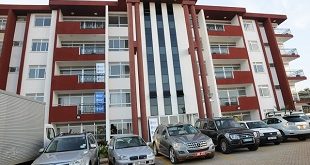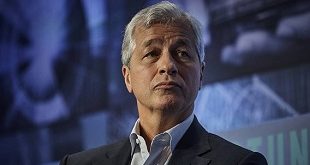
By Bob Roberts Katende & Isaac Mufumba
Kiboko Squad:
Opposition prepare to fight back
Group compared to Mungiki
He moves with a swagger. Wearing dark eyeglasses, he keeps rubbing his clenched right hand fist that reveals heavily scarred knuckles against his left hand palm throughout the interview. Thats Juma Ssemakula alias Backfire, the self-confessed leader of the Kiboko Squad.
Ssemakula, 37, is a free man even after he came out publicly to declare he heads the infamous Kiboko Squad, a lawless group of stick wielding men notorious for beating up opposition politicians.
Inspector General of Police Maj. Gen. Kale Kayihura has denied links between the force and Kiboko Squad. The police say they are investigating the gang.
Ssemakula says he is a veteran of President Yoweri Museveni’s 1981-86 National Resistance Movement liberation bush war.

He says he formed the Kiboko Squad to protect businesses people and their property during riots, which are mainly organised by the opposition. He says, during the 2007 demonstrations against governments plans to give away Mabira Forest, he went to police to seek protection only to be told that they were waiting for orders from above. I thought we couldnt wait any longer. I mobilised my friends who were ready to risk their lives and we got sticks to get rid of these demonstrators. Whoever felt aggrieved would join us and that is why we made such big numbers, Ssemakula says, I have colleagues in almost every corner of the town who call me in case there is disorder in their area,†Ssemakula says.
Gaps in Ssemakula’s story
Despite Ssemakula’s claims, the origin, organisation, and command of the gangs is shrouded in secrecy. Investigations by The Independent show that the gangs are drawn from different parts of the city depending on the proximity of the demonstration.
In the latest incident on June 9, the leader of Uganda’s biggest opposition party, the Forum for Democratic (FDC), Kizza Besigye was beaten at Clock Tower in downtown Kampala. The gangs were from the nearby St. Balikuddembe Market and the Kampala Veterans Development Association Market commonly known as Kaveda along Kafumbe Mukasa Road. Its chairman is an army veteran. Some say he provided the sticks the gang used. A man calling himself Kyeyune told The Independent that he belongs to the gang that beats up people. He said he did not participate in the beating at Clock Tower but pointed at a security officer at St. Balikuddembe Market only known as Kasita as the leader of that attack. It appears the gang is drawn from various security outfits, army veterans and other overzealous state loyalists.
Kisekka market vendors say that some of the Kiboko Squad members who beat them when they were demonstrating against the giveaway of the market to Col. Mugyenyi were taxi touts from Uganda Taxi Owners and Drivers Associations (UTODA).Â
The earliest incidents of beating were by the Kalangala Action Plan (KAP) led by President Museveni’s Advisor on Special Duties, Maj. Roland Kakooza Mutale.
Mutale said he reports directly to the president and not any other security organ.
The Kiboko Squad attacks have been linked to the police. Police denies it but, during the Mabira riots, hordes of men swarmed from the Central Police Station in Kampala to beat up the demonstrators with sticks.
Soon after the April 2007 Kiboko squad beatings, President Museveni praised the group as “patriotic citizensâ€. Ssemakula says although the police have disowned the Kiboko Squad, they appreciate its efforts. Not everything Ssemakula says appears to be true.
Ssemakula says he fought in Museveni’s NRA bush war between 1981 and 1986. Considering that he is 37, he must have joined when he was eight years old. The NRA used child fighters and his story cannot be totally dismissed. He claims to work in Owino market but the information shows he has no stall in the market.
He claims to have helped the police arrest serial killer Richard Arinaitwe who attempted to strangle former Buganda Road Court magistrate Jane Alividza during a trial some years ago. “I heard over the radio that Arinaitwe was trying to murder a magistrate. I quickly left home for court to help police arrest and handcuff this guy because I am a trained kick boxer,†Ssemakula brags.
His story is not credible. The incident took a very short time in the magistrate’s chambers and it’s the police guard on duty who rescued the situation.
According to information available to The Independent, Ssemakula has been in close contact with police for a long time. He publicly brandishes a pistol without fear of being apprehended. Â
Asked whether Ssemakula is among civilians who are licensed to carry a firearm, police spokesperson Judith Nabakooba said: “I don’t know that very well, I need to cross check.â€
After the June 9 incident, the Third Deputy Premier and Minister of Internal Affairs, Kirunda Kivejinja issued a statement on June 15: “This group is unknown to the Police… criminal charges will definitely be brought against anyone who will be identified.â€
Police boss Kayihura has vowed to arrest the Kiboko Sqaud members. However, when Ssemakula walked to the CPS in Kampala and recorded a statement, he was not arrested. The Assistant Inspector General of Police Okoth Ochola said another five members of the gang had recorded statement. “If we had arrested them,†Ochola says, “it would have jeopardised our investigation since others would have gone into hiding.†The police reaction raises questions. How do the police expect to arrest them? Why are the gang members turning up to CPS voluntarily? Why don’t they fear arrest?
Hillary Odoki the head of newly created Special Investigation Unit of police that is handling the matter said their investigations into the composition and structure of Kiboko would take a week.
But Bugweri County MP, Abdul Katuntu, scoffs at the investigations: “What kind of investigation is this going to be? Police are suspects! How then do they investigate themselves?â€
MPs David Bahati (NRM) and opposition MPs Elias Lukwago, Lulume Bayiga, Kassiano Wadri, Livingstone Okello Okello, have condemned the police.
Abdul Katuntu described Kirunda as “the historical originator and author of the Kiboko squadâ€.
Kivejinja was in 2006 found guilty by the High Court, the Court of Appeal and Supreme Court of employing gangs to beat up people in his native Bugweri County.
Looming danger
Members of parliament and the Uganda Law Society have demanded an investigation into the gang. But the situation threatens to descend into anarchy.
Opposition politicians are preparing to fight the gang.
“Our people shall be trained to resist that thuggery, but not to become thugsâ€, FDC Vice President in charge of Eastern Uganda, Salaamu Musumba, told The Independent. She said they would use psychological and physical defense and employ concealed and unconcealed weapons.
“For now, the psychological line of defense has been exhausted, what is left, she said, is the employment of the last two lines of defense.
The opposition shadow minister for Defence and Internal Affairs, Hussein Kyanjo says if the police disown the gang, he would mobilise people to lynch them as criminals.
FDC Chairman in charge of Security Maj. John Kazoora says he has begun moving with a stick in his car to confront the gang.
Opposition leader Jaberi Bidandi Ssali of the People’s Progressive Party (PPP) told The Independent that the events of June 9 were a fulfillment of what he had earlier predicted.
In open letter to President Yoweri Museveni dated April 27, 2009, Bidandi warned: “You (President Museveni) might have equipped the army, militarized the police and the civil service and misused the poor peasants’ children by training them into Kiboko squads to beat the very people you are mandated to protect, but the price in human blood and subsequent skulls could be much more than the country has seen before.â€
Bidandi says the NRM has resorted to the employment of goons such as those in the Kiboko Squad because it “has lost direction, ground and popularityâ€. It is a view shared by the Executive Director of the Foundation for Human Rights Initiative (FHRI), Livingstone Ssewanyana.
“This is a sign of impunity and an indication of panic as we go into 2011. People are prepared to use even illegal means to create fear and cling on to power,†says Ssewanyana.
The kiboko squad is being compared to the gangs that perpetuated the 1994 genocide in Rwanda. Gangs like the Kiboko squad are prone to manipulation from the initial objectives.
According to the United Human Rights Council, the Rwandan genocide resulted from the conscious choice of the elite to promote hatred and fear to keep itself in power. Witness say the Rwanda gangs, the Interahamwe, were initially formed to protect members of the ruling MRND against the threat posed by the newly formed political parties. The group later transformed into a kind of party militia that targeted opposition politicians, moderate Hutus and members of the ethnic Tutsi.
The level of ethnic tensions are different but there is no mistaking the fact that as was in Rwanda then, a clique of privileged people within the NRM leadership, uncomfortable with the growing internal opposition and sustained efforts at cohesion, is setting the Kiboko squad against the opposition.
The government’s use of violent squads usually perpetuates a culture of violence in society. At some stage the state fails to control them and they run amok driving a country into a state of bloodshed and lawlessness.
In neighbouring Kenya, the Mungiki sect started in the 1980s as a communal group defending Kikuyu families that had been forcibly evicted from their homes in Rift Valley Province due to political tensions. Today, the sect is a formidable political force that uses violence and threats of use of force and murder to extort money from farmers and traders. Politicians still use it to do “dirty jobsâ€.
It was outlawed in 2002 but its brutality peaked in 2007 when it publicly beheaded several matatu drivers who refused to pay extortion fees. Reports published by the Kenya National Commission on Human Rights (KNCHR) and the Commission of Inquiry into the Post-Election Violence (CIPEV) have linked Mugiki to the Jan. 2008 post-election violence in Kenya. Is that where Uganda is headed in 2011?
 The Independent Uganda: You get the Truth we Pay the Price
The Independent Uganda: You get the Truth we Pay the Price


